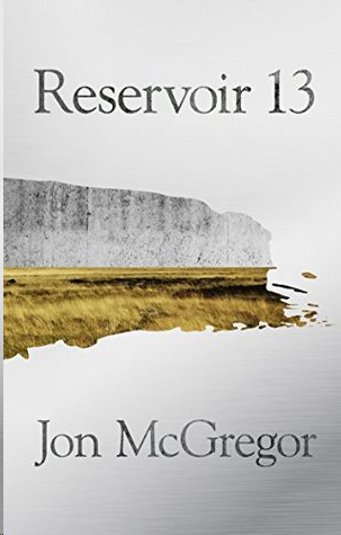A Girl Vanishes, Seasons Pass, in Jon McGregor’s ‘Reservoir 13’

Reservoir 13
By Jon McGregor
Catapult
240 pages
A girl goes missing on the first page of Jon McGregor’s remarkable new novel, Reservoir 13, a recent winner of the prestigious Costa Book Award for Best Novel of 2017. Rebecca Shaw, aged 13, is the daughter of a family visiting a small English village near the start of the new year. As news spreads of her disappearance, the villagers have an immediate sense of concern (and disdain) for the newcomers’ lack of caution:
“This was no time of year to have gone up on the hill, it was said. Some of the people who come this way don’t know how sharply the weather can turn. How quickly darkness falls.”
A frenzied, exhaustive search gets underway. But despite the best efforts of residents and authorities, no trace of the girl is found. McGregor, employing a kind of narrative wide-angle lens, travels fitfully among the villagers—Jones, the school janitor; Jane, the vicar; the butcher Martin Fowler and his wife, Ruth; teens Sophie, James, Liam and Deepak—pausing long enough to remark on their circumstances and then moving on.
In succeeding chapters, years go by. Romances flare up, marriages go sour. There are council meetings, small-town theatrical productions and other gatherings where villagers exchange chatter and intrigue with one another. At the same time, in the natural world surrounding the village, life proceeds apace:
“In the beech wood the foxes gave birth, earthed down in the dark and wet with pain, the blind cubs pressing against their mothers for warmth. The dog foxes went out fetching food. The primroses yellowed up in the woods and along the road. The reservoirs were a gleaming silver-gray, scuffed by the wind and lapping against the breakwater shores.”

Much of the novel is comprised of sentences delivered in a passive construction (“it was known,” “there were some who thought”). This serves to heighten the sense of the village as a separate, gossipy and moralistic unit. Cleverly sprinkled colloquialisms (“Jackson’s sheep had taken the fear”) also evoke a countryside milieu. The greater, outside world is seldom mentioned or described.
As seasons go by, hopes for some kind of closure about Rebecca Shaw are intermittently fanned when she comes up in conversation or in some recurring image or rumor. But within the scope of this novel, such hopes can’t be realized. Even as villagers move on to other experiences like pregnancy, child-rearing, aging, and death, they’re troubled by the never-ending question—what happened to the girl?
“In the village people looked up to the hills and felt that they’d long known. She could have walked high over the moor and stumbled into a flooded clough and sunk cold and deep in the wet peat before the dogs and thermal cameras came anywhere near, her skin tanned leather-brown and soft and her hair coiled neatly around her. She could have fallen anywhere and be lying there still.”
Reservoir 13 continues a distinctive lineage that extends from Flannery O’Connor’s Southern gothic to more recent “community-centric” works like The End of Vandalism by Tom Drury and Harvest by Jim Crace. But there’s something more haunting, more ruthlessly objective in the lens McGregor trains on the people and wildlife in and around the village. In the 13 years that transpire in this story, some folks will bumble into happiness. Others will experience lifelong frustrations and dashed hopes. With each year that passes after Rebecca Shaw goes missing, people grow older and die. Jon McGregor is there to record it all and let us, his readers, do with it what we will.
Author Bio:
Lee Polevoi, Highbrow Magazine’s chief book critic, has just completed a new novel, The Confessions of Gabriel Ash.
For Highbrow Magazine






























































































































































































































































































































